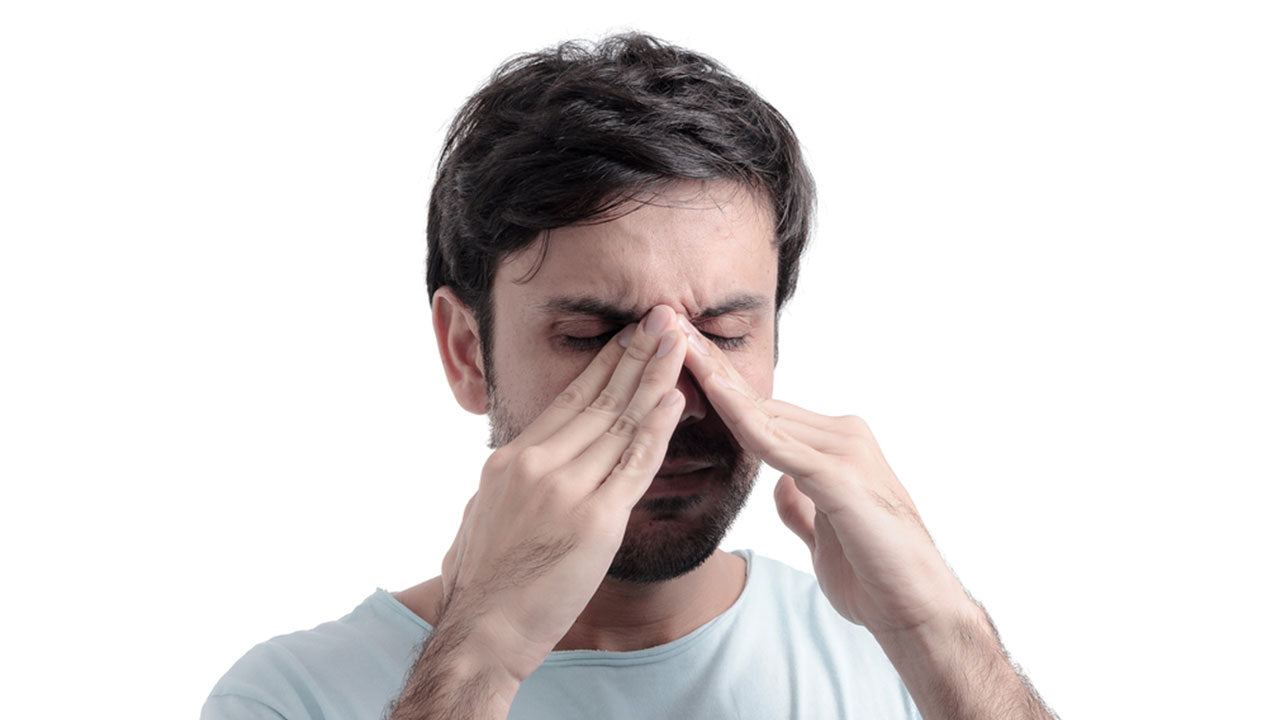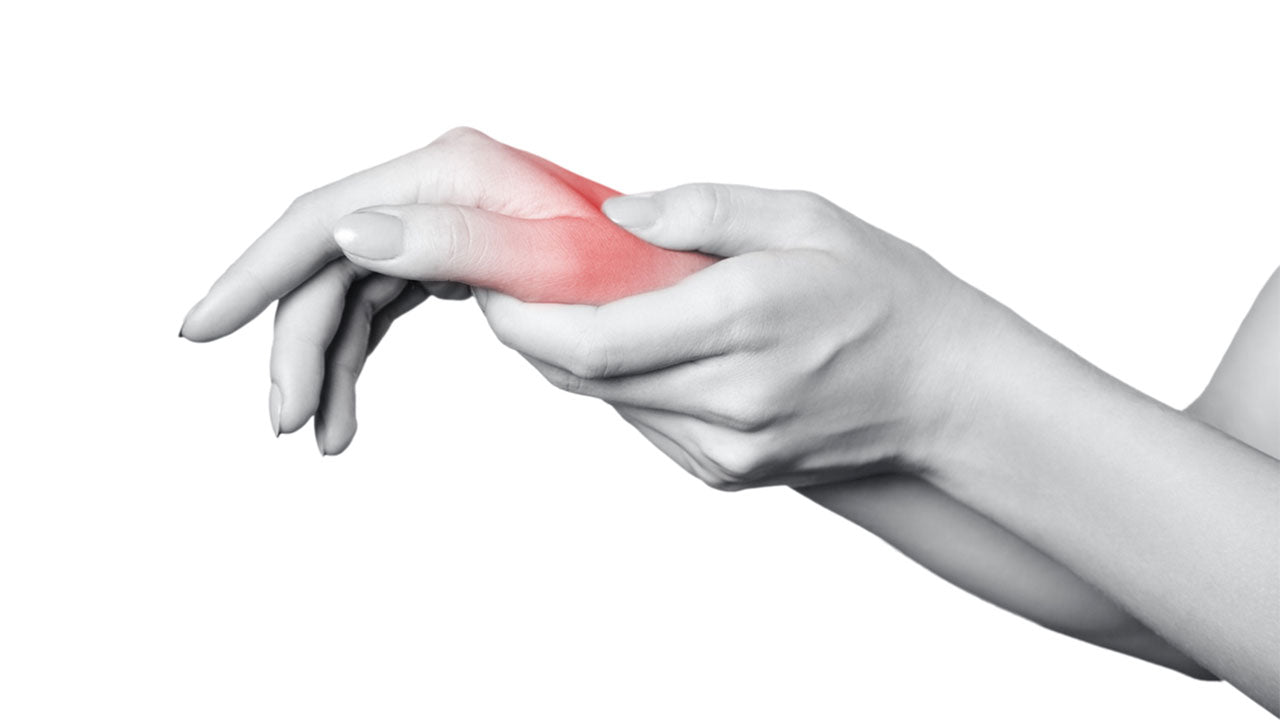Nasal Polyps: Causes, Symptoms, Treatment, Surgery
 By: by Amino Science
By: by Amino Science

Nasal polyps are soft, fleshy, noncancerous growths that develop on the lining of the nose and paranasal sinuses (the air-filled spaces that are linked to the nasal cavity). Nasal polyps can affect anyone, but adults are more likely to develop this condition. They affect an estimated 4-40% of the general population, and they are more common in men.
Polyps vary in size and color; they may be yellowish-brown or pink, with a shape similar to a teardrop. As they mature, they might look like grapes. Nasal polyps may grow in one or both nostrils at the same time, and they can grow in clusters. If they become large, they can cause breathing difficulties.

Nasal Polyps Symptoms
If the nasal polyps are small, you may not experience any symptoms, but if they grow or form clusters, they might block nasal passages and sinuses and cause inflammation of the lining of the nose. Inflammation that lasts more than 12 weeks is referred to as chronic sinusitis or chronic rhinosinusitis. Having chronic sinusitis without nasal polyps is possible.
Common symptoms of nasal polyps and chronic sinusitis include:
- A chronically runny nose
- Postnasal drip
- Stuffiness that won't stop
- Loss of sense of smell
- Decreased sense of taste
- Headache or facial pain
- Sinus pressure
- Discomfort in your upper teeth
- Snoring
Cause of Nasal Polyps
Scientists do not know exactly why chronic inflammation triggers polyp formation in some people and not in others, but there is some evidence that people who develop polyps have a different immune system response and different chemical markers in their mucous membranes. Conditions that trigger chronic inflammation in the nose, such as infections or allergies, may increase the risk of developing nasal polyps. These conditions include:
- Asthma: A chronic disease involving the airways in the lungs.
- Aspirin sensitivity: A sensitivity to aspirin or nonsteroidal anti-inflammatory drugs (NSAIDs) can cause itchy and watery eyes and nasal congestion.
- Allergic fungal sinusitis: A type of fungal infection in the sinuses.
- Allergic rhinitis: Commonly known as hay fever, this type of inflammation occurs when the immune system is overwhelmed by allergens in the air.
- Cystic fibrosis: A disease that causes the production of thick mucus from nasal and sinus membranes.
- Churg-Strauss syndrome: A rare disease that causes the inflammation of blood vessels.
- Family history: Certain genetic variations in immune system function can cause nasal polyps.
Nasal polyps can cause complications because of the inflammation, and because they block airflow and fluid drainage. Potential complications include sleep apnea, asthma flare-ups, and sinus infections.
Nasal Polyps Treatment
If you have chronic sinusitis, with or without polyps, you will have to work with your doctor to develop the best long-term strategy to manage the specific symptoms. Nasal polyps treatments aim to reduce polyp size and eliminate them. The first step is usually medications, which are effective in reducing large polyps and making them disappear.
Nasal Corticosteroids
Doctors usually prescribe corticosteroid nasal spray to reduce inflammation and help get rid of polyps. Nasal steroid sprays include fluticasone (Flonase, Veramyst), budesonide (Rhinocort), flunisolide, mometasone (Nasonex), triamcinolone (Nasacort Allergy 24HR), beclomethasone (Beconase AQ), and ciclesonide (Omnaris).
Oral and Injectable Corticosteroids
The second step, if nasal corticosteroids are not working, is to take an oral corticosteroid, such as prednisone, used alone or in combination with a nasal spray. Keep in mind that these medications can cause serious side effects, and experts recommend that you take them only for a limited period. If nasal polyps are severe, injectable corticosteroids may be used.
Other Medications
Additional medications might be necessary to treat specific symptoms that contribute to creating chronic inflammation in your sinuses or nasal passages. Examples include antihistamines to treat allergies and antibiotics to treat a chronic or recurring sinus infection. Aspirin desensitization and treatment may be used to treat patients with nasal polyps and aspirin sensitivity.
Nasal Polyps Surgery
If the medications are not effective, sinus surgery might be an option, especially for those who suffer from complete nasal obstruction. Endoscopic surgery is a procedure used to remove polyps and to correct specific issues in sinuses that make them susceptible to inflammation. A nasal endoscopy involves inserting a small tube with an endoscope (tiny camera) into the nostrils. Then, the surgeon uses tiny instruments to remove polyps and other obstructions that block the flow of fluids. The surgeon may also enlarge the openings leading from your sinuses to your nasal passages.
Patients are usually allowed to return home after an endoscopic sinus surgery, and they are given a corticosteroid nasal spray to help prevent the recurrence of the condition. Nasal saline irrigation can also help flush both the nasal passages and the sinuses after sinus surgery. A specially formulated recovery blend of essential amino acids can also help you heal faster from nasal polyp surgery.
Nasal Polyps Prevention
The following strategies might help reduce the risk of developing nasal polyps.
Allergies and Asthma
If you have allergies or asthma, talk to your doctor about the best treatments to control these conditions. If symptoms persist, consider changing the treatment plan—there are a variety of remedies against allergies and asthma.
Nasal Irritants
Avoid breathing substances that might contribute to creating inflammation or irritation in your nose. Examples of substances that might trigger nasal polyps include allergens, tobacco smoke, chemical fumes, and dust and fine debris.
Hygiene
Washing your hands regularly and thoroughly is a great habit—regardless of the specific goal to prevent nasal polyps. Good hygiene is one of the best ways to protect against viral infections that can cause inflammation in the lining of the nose.
Humidifier
If the air in your home is dry, consider using a humidifier, which will help moisten your nasal passages and improve the flow of mucus. Using a humidifier will help prevent inflammation and nasal polyps formation.
Nasal Spray
Use saline (saltwater) nasal spray to clear up your nasal passages, improve mucus flow, and remove bacteria. You can purchase over-the-counter saline sprays, or you can you make your own spray. If you want to create your own, use water that has been previously distilled, sterilized, boiled, and cooled. Rinse the device after each use—always use distilled, sterile water.

Up to 25% off Amino
Shop NowTAGS: conditions
Join the Community
Comments (0)
Most Craveable Recipes




 833-264-6620
833-264-6620



















